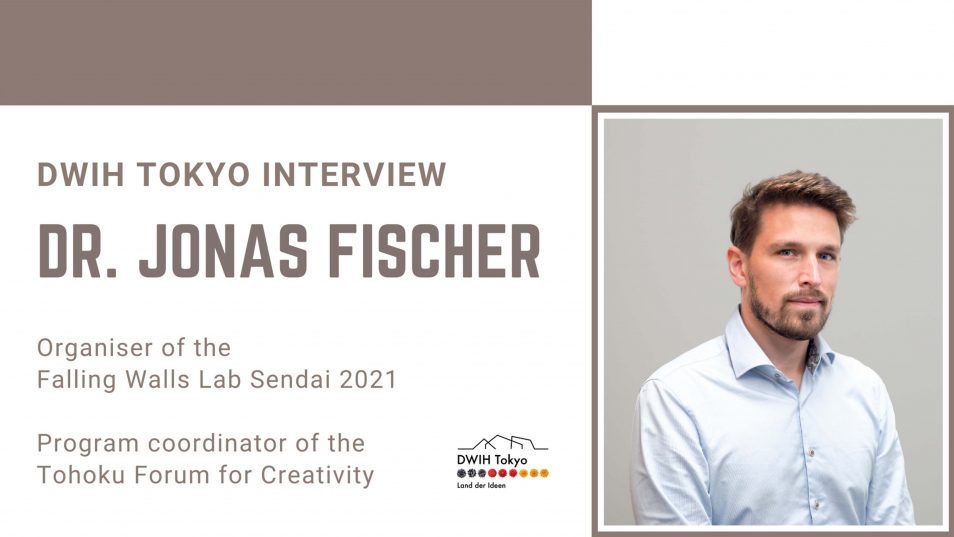Dr. Jonas Fischer
 © DWIH Tokyo / Dr. Jonas Fischer
© DWIH Tokyo / Dr. Jonas Fischer
The Falling Walls Lab Sendai 2021 (FWL Sendai 2021), hosted by Tohoku University and co-hosted by the DWIH Tokyo, took place on August 31, 2021. We had a special interview with Dr. Jonas Fischer, an organiser from Tohoku University. He won the second prize with the presentation “Breaking the Wall of Energy-Efficient Data Storage” at the same event last year, in 2020. This year, he brought huge success to the event as an organiser. Meanwhile he works as a program coordinator at the Tohoku Forum for Creativity.
How was your impression of the presentations and participants of Falling walls Lab Sendai 2021?
I was very satisfied with the presentations. Everyone did their best at the event. I think the coaching we had beforehand helped a lot of the participants. Regarding viewers, we had over 100 viewers in total. We received almost exclusively positive feedback so it seems most viewers were satisfied. The only thing that was mentioned negatively was the slightly strict timekeeping.
You won the second prize at FWL Sendai back in 2020. Did it lead to any changes in your research and work afterwards?
Even before the FWL Sendai 2020 I was convinced that explaining one’s research to the public is a very important part of a scientist’s work. Going on to the Global Finals hosted from Berlin and being selected as one of ten winners in the Emerging Talents category reinforced this belief and led to me wanting to make promoting science a bigger part of my job. That’s why I started to work at the Tohoku Forum for Creativity, where organizing science outreach events, including Falling Walls, is part of our mission.
Participating in FWL as a participant and as an organiser, what are the differences for you?
As participant my focus was to explain my own research as clearly and understandable as possible. As organizer I tried to help the participants to do their best. One idea of mine was to introduce a several weeks long coaching for the contestants, where they learned how to create engaging presentations and how to perform on stage.
How was it to co-host the event together with DWIH Tokyo?
Thanks to the support from the DWIH Tokyo we could hire professional coach Atsuko Kohata who taught more than 20 participants over several weeks, with additional support for non-native speakers of English. The collaboration was incredibly smooth, and I am very grateful for all the help!
Do you have any messages for future FWL applicants?
Not only the winners but all the participants can benefit a lot from participating in a contest like FWL. You will learn how to present your research in an attractive and easy-to-understand way, and you might even get some new ideas from seeing all the incredible work the other participants are doing. It is a great way to gain public speaking experience and learn about cutting edge research. For Japanese participants: As our winner, Saeka Uchino said, don’t be afraid to participate. You will learn a lot and improve your English-speaking ability.
Interview: Chiaki Motoshima (DWIH Tokyo)
Dr. Jonas Fischer
Jonas Fischer is a program coordinator at the Tohoku Forum for Creativity, organizing academic conferences and science outreach programs. Before starting to work there in 2020 he was a researcher at the University of Tokyo, focusing on so called magnetoelectric multiferroics, which could enable energy-efficient data storage in the future. He gained his PhD in physics at Augsburg University in 2018.
